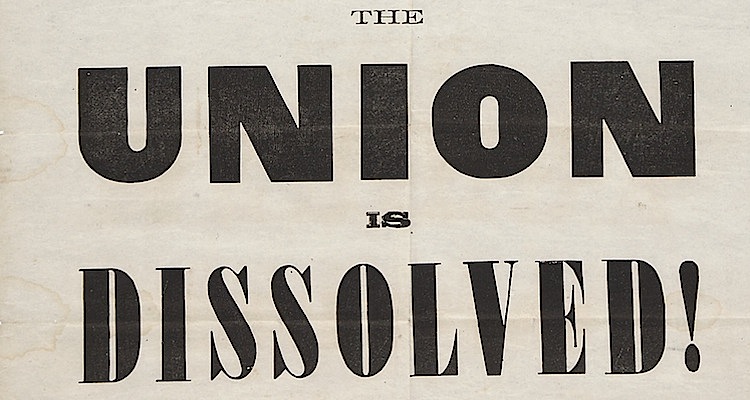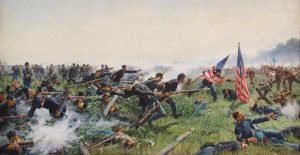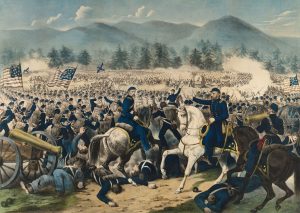Can you tell me which states named slavery in their Cause of Secession?
TVH
Dear TVH,
Although they mentioned other causes and sometimes used veiled references to defense of “life and property,” none of the secessionists was shy about making some reference to slavery as a primary cause for their dissolution of ties with a United States government that had, in their eyes, fallen under the domination of the “Black Republicans,” as a careful look through their respective ordinances of secession will reveal.
The attitudes of the time can be found in more detail in the rhetoric that accompanied the breaks. At the very onset, on December 20, 1860, South Carolina declared that President-elect Abraham Lincoln’s “opinions and purposes are hostile to slavery.”
On January 7, 1861, the ordinance signed in Montgomery that “it is the desire and purpose of the people of Alabama to meet the Slaveholding States of the South, who may approve such purpose, in order to frame a provisional as well as permanent government upon the principles of the Constitution of the United States.”
On February 2, 1861, Texas declared its decision to be “based upon the unnatural feeling of hostility to these Southern States and their beneficent and patriarchal system of African slavery, proclaiming the debasing doctrine of equality of all men, irrespective of race or color—a doctrine at war with nature, in opposition to the experience of mankind, and in violation of the plainest revelations of the Divine Law.”
On March 9, 1861, Arkansas’s George B. Smoote added a resolution: “Resolved, that the platform on the party known as the Black Republican Party contains unconstitutional dogmas, dangerous in their tendency and highly derogatory to the rights of slave states, and among them the insulting, injurious and untruthful enunciation of the right of the African race of their country to social and political equality with the whites.”
On April 17, 1861 latecomer Virginia, provoked by Lincoln’s raising troops to suppress the already seceded states, declared “Lincoln’s opinions and purposes are hostile to slavery” as it cut ties with Washington. Tennessee was the 11th and last, its population divided on secession (eastern Tennesseans generally opposed it), but not on the slave issue.
Such is the underlying motive behind “States’ Rights” and the “heritage” symbolized then as well as now by the Confederate battle flag—and, for that matter, the national “Stars and Bars.”
Sincerely,

Jon Guttman
Research Director
historynet.com
More questions at Ask Prof. History





